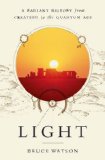Summary | Excerpt | Reviews | Beyond the book | Read-Alikes | Genres & Themes | Author Bio

An Intimate History
by Richard ForteyA fascinating geological exploration of the earth's distant history as revealed by its natural wonders.
From the acclaimed author of Life and Trilobite!, a fascinating
geological exploration of the earth's distant history as revealed by its natural
wonders.
The face of the earth, crisscrossed by chains of mountains like the scars of old
wounds, has changed and changed again over billions of years, and the testament
of the remote past is all around us. In this book Richard Fortey teaches us how
to read its character, laying out the dominions of the world before us. He shows
how human culture and natural history–even the shape of cities–are rooted in
this deep geological past.
In search of this past, Fortey takes us through the Alps, into Icelandic hot
springs, down to the ocean floor, over the barren rocks of Newfoundland, into
the lush ecosystems of Hawai'i, across the salt flats of Oman, and along the San
Andreas Fault. On the slopes of Vesuvius, he tracks the history of the region
down through the centuries to volcanic eruptions seen by fifteenth-century
Italians, the Romans, and, from striking geological evidence, even Neolithic
man. As story adds to story, the recent past connects with forgotten ages long
ago, then much longer ago, as he describes the movement of plates and the
development of ancient continents and seas. Nothing in this book is at rest. The
surface of the earth dilates and collapses; seas and mountains rise and fall;
continents move.
Fortey again proves himself the ideal guide, with his superb descriptions of
natural beauty, his gripping narratives, and his crystal-clear, always
fascinating scientific explanations.
Here is a book to change the way we see the world.
"It should be difficult to lose a mountain, but it happens all the time around the Bay of Naples." Thus Fortey begins Earth: An Intimate History, described by reviewers as 'a tale of high drama', 'a treasure-house of mind-expanding lore', 'enthralling', 'a dazzling voyage of discovery' - and that's just a small taste of the glowing praise for Fortey, whom the Economist describes as 'the Raymond Chandler of science writing' and then goes on to say, 'his prose is angelic, his phrases well-turned. . . . And though Earth is no murder story, it is a mystery book and, in its own way, a thriller.'..continued
Full Review
(210 words)
This review is available to non-members for a limited time. For full access,
become a member today.
(Reviewed by BookBrowse Review Team).
Richard Fortey is a senior paleontologist at the Natural History Museum in London. Life was short-listed for the Rhône-Poulenc Prize in 1998, Trilobite! was short-listed for the Samuel Johnson Prize in 2001, and The Hidden Landscape was awarded the Natural World Book of the Year in 1993. He was Collier Professor for the Public Understanding of Science and Technology at the Institute of Advanced Studies in 2002 and is now a Fellow of the Royal Society.

If you liked Earth, try these:

by Bruce Watson
Published 2016
Although lasers now perform everyday miracles, light retains its eternal allure. "For the rest of my life," Einstein said, "I will reflect on what light is." Light explores and celebrates such curiosity.

by Ruth Kassinger
Published 2015
In the tradition of The Botany of Desire and Wicked Plants, a witty and engaging history of the first botanists interwoven with stories of today's extraordinary plants found in the garden and the lab.